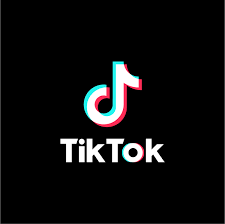With over 800 million users, TikTok is now the second-most downloaded app in the world. The video-sharing platform’s meteoric rise has set the stage for an unprecedented cultural influence that must be restricted.
TikTok has made its way into the public consciousness over the past few years for the dances and many content creators the app has popularized. Former University student Addison Rae has over 54 million followers on the app, where the majority of the content is either lip-syncing, dancing, instructional, artistic or truly random.
At first glance, the app seems completely harmless and devoid of the baggage that other social media giants have in regards to dangerous rhetoric and politicized content. There is less room for arguments and conflict since the content is all seemingly upbeat and happy. The issue with TikTok was never the content on the page but what is left out.
TikTok and its parent company ByteDance are Chinese and originally based out of Beijing. The Chinese government and the ruling Communist Party require that Chinese companies are beholden to both their investors and to the Party. Companies in China often have in-house party committees to guide the company. ByteDance’s committee is headed by the company’s vice president, Zhang Fuping.
The Chinese Communist Party (CCP) shows its influence in the app’s censorship policies. Though it’s almost impossible to know what TikTok is censoring versus letting in, some content creators have acted as whistleblowers.
One U.S. teenager, Feroza Aziz, had her account suspended soon after posting a critique of the Chinese government’s treatment of Uyghurs in Xinjiang disguised as a makeup tutorial.
Beyond its suppression of American content creators, TikTok is also responsible for pushing CCP propaganda. In 2019 the Australian Strategic Policy Institute published a study that showed TikTok was complicit with and encouraged the suppression of human rights abuses in the region of Xinjiang against the Uyghur Muslims.
The study showed that TikTok was found collaborating “with public security bureaus across China, including in Xinjiang where it plays an active role in disseminating the party-state’s propaganda on Xinjiang.”
Due to the potential consequences of Chinese corporations owning U.S. citizens’ data, President Trump and his administration have gone to court to ban TikTok or at least require ByteDance to sell the company to an American firm. So far, two judges have blocked the order.
The Trump administration’s concerns about data and privacy are valid but I think the biggest threat is how the CCP controls moderation and censorship. A large majority of TikTok’s users are between 16 to 25 years old or younger and they may be more susceptible than older adults to misinformation.
The CCP has shown time and time again that it is committed to its authoritarian ways. The behavior of the party in regards to Hong Kong, Taiwan, the Uyghur Muslims and pro-democracy activists in the last two years makes it abundantly clear that the CCP is working against the side of progress.
TikTok is not an inherently bad thing. If Tiktok’s censorship and content were controlled by a firm or company that is not beholden to the CCP, it wouldn’t pose any risk at all. The future of technology and social media must be scrutinized more than ever as such things become more pervasive and essential to our lives.
TikTok must be banned in the U.S. or steps must be taken to ensure the content is produced fairly. Ensuring that the platform is a free and fair space for ideas would uphold the ideals that our country is built on. To allow TikTok to continue under the CCP’s control would be a disservice to the idea of free speech.
Cory Koch is a 21-year-old political science senior from Alexandria.





